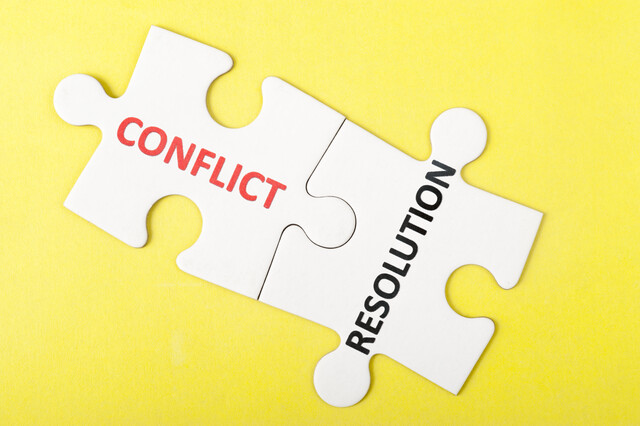Your Legal and Ethical Responsibilities as a Manager in the Workplace
Introduction
Managers at all levels are held to a high standard of ethical behavior. Every day, these individuals make key decisions that affect the companies for which they work, its shareholders, and all other stakeholders involved, including society as a whole. As a manager yourself, it is essential to understand and adhere to the ethical and legal obligations of your position in order to meet the expectations of all stakeholders, and to set an example of such behavior for others.
What follows is a history, explanation and overview of business ethics and business law. We will subsequently discuss the responsibilities of management in both areas, and what you as a manager can do to ensure that you are acting both legally and ethically. You'll likely discover the parallels that exist between both business ethics and business law, which are indeed complimentary in many ways.
What are ethics?
Ethics are the set of moral principles that guide personal or group behavior. Ethics is actually a discipline of philosophy, and is sometimes referred to as ethical theory, moral theory, philosophical ethics, and moral philosophy.
The roots of ethics as a branch of philosophy can be traced as far back to Socrates, Plato, Aristotle, and other early Greek philosophers; many of whom developed the framework of modern ethical thought as it pertains to the Western World. The word 'ethics' itself originates from the Greek word ethikos, derived from ethos, meaning the "character or disposition of a community, group, person, etc."
What are business ethics?
'Business ethics' integrates the core elements of ethical philosophy into business activities, institutions, and organizations. Business ethics focuses on the study of moral standards - of right and wrong - and how these standards are applied (or not) to the production, distribution and utilization of goods and services. These standards are applicable to both individuals within an organization and the organization as a complete entity.
In today's business world, managers are expected to behave morally, to know what is right and wrong, and to know what is potentially good and bad for all stakeholders involved. Businesses can either positively or negatively affect its stakeholders through its activities, objectives, and policies. Likewise, stakeholders can also positively or negatively affect businesses.
A stakeholder can be defined as any group, organization, or person that has an interest in the activities of an organization. Stakeholders can be classified as either primary or secondary. Primary stakeholders are those that have a contractual, formal or official relationship with the organization and are a central part of its operations. Examples of primary stakeholders include customers, employees, owners, and suppliers.
Secondary stakeholders are not employed by the company, yet are affected by their actions. Examples of secondary stakeholders include consumers, environmental groups, the American Civil Liberties Union (ACLU) and other civil rights groups, society as a whole, the media, community groups and special interest groups.
As an example, a company that unethically disposes of its waste product is negatively affecting the environment; and therefore negatively affecting secondary stakeholders such as environmental groups and society as a whole. An employee who does something against company policy, such as stealing or discrimination, harms primary stakeholders such as other employees and ownership.
Both in the United States and the world, there is an underlying mistrust and skepticism of business institutions. A seemingly incessant occurrence of ethics scandals and corporate malfeasance has resulted in defunct companies, trillions of dollars in lost wealth, a reeling national and global economy, and governments that are scrambling to provide some semblance of a solution in hopes of protecting its citizens from such damaging events in the future.
The aforementioned events have reminded companies the important role ethical standards play throughout their respective organizations. As managers, you too have a crucially important responsibility in that you are the 'gatekeepers' in this respect for your organization.
The Role of Business Ethics in Management Responsibilities
Organizations place a considerable amount of trust in their management. From the CEO on down, managers have a responsibility in ensuring that both they and their subordinates behave ethically and in the best interest of both primary and secondary stakeholders.
As a manager, it is considered one of your primary responsibilities to both understand and practice ethical behavior in order to: meet the company's expectations for conduct, set an example of appropriate behavior for subordinates, and to minimize the ambiguity that often comes along with the practice of ethics.
Therefore, it is essential for managers to understand Codes of Conduct, Codes of Ethics, or any other official set of rules and to attain and keep records of related documentation laying out the expectations and guidelines for ethical behavior. Managers also have a responsibility to ensure that those who report to them understand these rules.
An ethical manager is also obligated to set the expectation that any and all ethically unsound practices are not acceptable. As such, anyone that either conducts or witnesses such an act has a responsibility to report it through the appropriate channels.
Leaders that consistently apply a company's 'Code of Conduct' or a similar program, along with other known and documented expectations of behavior, provide a foundation of moral conduct and trust in their relationships with stakeholders.
As managers, you must also ensure full understanding of your company's expectations for managers in general, specifically those placed within your assigned role. Ethical ambiguity is not something that a manager at any level should consider acceptable. If uncertain about a specific policy, procedure, or other matter, the manager should ask for clarification and attain the appropriate documentation as needed.
Managerial guidelines for ethical dilemmas
In some instances, what is 'ethical' and 'unethical' is rather unclear - this is what is known as an ethical dilemma. Ethical dilemmas are very common in today's workplace. Most studies done on the topic conclude that managers face these dilemmas on a frequent basis with competitors, customers, subordinates, supervisors, regulators, and suppliers. Among the most common types of dilemmas faced by managers are truthfulness in communication and agreements, pricing policy, perks and kickbacks, management of employees and employee termination.
Ethical dilemmas are so common because they are often situations involving decisions that will likely benefit the manager or their organization. The problem is that this decision may be not only unethical, but illegal. Despite its vague nature, managers are responsible for ensuring ethical conduct in these situations as well.
As managers, you can set a framework that will help you responsibly make the right decision when faced with an ethical dilemma. This framework consists of three methodologies: the human rights, justice, and utilitarian methods.
Management that uses the human rights method base decisions on the premise that human beings are entitled to moral rights. This method includes the entitlements of the most basic rights - freedom, health, life, privacy, and property rights, for example. Denying these rights to anyone, anywhere, is a violation of these rights and is considered unethical. The potential use of child labor outside of the United States as a means of production is an example of a serious human rights dilemma.
Managers also use the utilitarian method in deciding what is ethical. This decision method involves the manager gauging the overall amount of good that will result from a decision. This method is unique in that it can include the evaluation of economic, human, and social costs or benefits. Many businesses classify this method as the "Cost-Benefit analysis." An example of this would be when a company prepares a budget and decides what amounts should be allocated to charitable causes, pension benefits, employee health benefits, and so on.
The third and final method that managers use is the justice method. This method focuses on the equitable and fair distribution of costs and benefits among persons and groups. Managers have the responsibility their employees pay, benefits, and work schedules are fair and balanced. Managers also have a responsibility to customers, making sure that prices are fair and that their products do as advertised reliably and safely.
At the organizational level, the culture of ethical business practices relies heavily upon management's willingness to model the behavior and take personal responsibility for its implementation. Management is responsible for encouraging such behavior by rewarding those who behave ethically and by punishing those who do not. In fact, ethical and responsible managers are probably the most important component in developing an ethical organizational culture.
Yet, some people contest that ethical standards have little if any value. These people argue that too much focus is put on ethical codes themselves, and that such provisions alone are not persuasive enough to encourage moral behavior within work environments. This brings us to the next topic: business law.
An Increased Demand for Accountability
In 2002, managers at all levels from companies such as Enron, Tyco and WorldCom engaged in ethically shameful, irresponsible behavior such as conspiracy, securities fraud, insider trading, making false statements, and accounting fraud, and were subsequently punished through various civil and criminal judgments. Employees, investors, creditors, and shareholders all demanded that action be taken through courts of law, which is what happened. Some former management from these now-defunct companies remain behind bars, serving up to nearly 25 years in prison.
As a result of these scandals, Congress passed the Sarbanes-Oxley Act, which established increased criminal penalties for those convicted of corporate wrongdoing. The Act also requires CEO's to certify all financial statements, and enforces internal rules of governance on public companies.
While the above examples are the most well-known cases demonstrating the relationship between ethics and law, they are just a few of many.
In a more recent case, in late August of 2014, the CEO and Chief Financial Officer of ArthroCare Corporation, a company that develops and manufactures medical device products, were sentenced to twenty and ten years in prison, respectively, for their roles in a security fraud scheme.
The point here is that external stakeholders demand that businesses and its managers behave ethically. Severe laws are in place to punish those who do not abide by the rules of society. It is the responsibility of managers at all levels within an organization to implement, abide by, and enforce behavior that is conducive to the law.
What is law? Business law?
Law is defined as "the principles and regulations established onto a community by some authority and applicable to its people, whether in the form of legislation or of custom and policies recognized and enforced by judicial decision."
Every society makes and enforces its own laws that govern the conduct of its people, businesses, and other organizations that operate within it. The United States sets and enforces such laws through the collective actions of its legislative, executive, and judicial branches of government.
The origins of law within the United States are: the U.S. Constitution, federal and state laws, administrative agency (Department of Defense, Department of Education, Department of Energy, etc.) rules and regulations, federal and state judiciary decisions, and executive orders. All managers and officers of organizations are obligated to obey all laws, rules, and regulations of the United States.
In the age of globalization, managers must also take into account the laws of other countries. In most cases, the business laws of other countries are reciprocated and enforced by the country is which business is being conducted. Foreign businesses whose operations include the territories of the United States are bound by U.S. law.
Businesses that originate in another country (example: Toyota, in Japan), yet are doing business within the United States, are subject to the laws of the United States, not the laws of Japan. Businesses that originate within the United States, for example McDonald's and that also operate in other countries, such as France, are subject to French laws, not American laws.
U.S. law and how it is applied to business is complex and detailed. A comprehensive examination of business law is well beyond the scope of this work. It is sufficient to state that laws and regulations exist that govern nearly every business activity.
Activities governed by U.S. law includes: e-commerce, torts, intellectual property, contracts, banking, credit, bankruptcy, employment, worker protection, hiring and termination, equal opportunity and affirmative action, immigration, labor law, accounting and financial recording, collective bargaining (unions), consumer protection, antitrust law, trade practices, product safety and environmental regulation, among others.
What is the relationship between business law and business ethics?
Business ethics and business law are interrelated in the sense that the ethical conduct of a business is often enforceable by legal means. This relationship is not unique to the United States; international entities such as the World Trade Organization (WTO) and the United Nations (UN) legally enforce ethical conduct across various countries.
Using the example of contracts, ethical behavior stipulates that those who enter into an agreement have an obligation to honor the agreement except in the case of rare and extenuating circumstances.
If you as a manager explain a contract to a customer, and that customer signs the agreement, you are both obligated to adhere to the stipulations of that contract. Failure to do so by either party will likely result in legal action being taken. Using this example, it is both ethically imperative per your company's Code of Conduct to be honest and forthright about the contract, and legally binding in a court of law.
On a larger scale, business ethics also intersects with business law in areas such as the minimum wage, false claims on a product or service, and the hiring of illegal immigrants. All three examples are cases where the law plays a part in regulating behavior and likely goes against a company's Code of Conduct.
Business law and Managers in the workplace
In addition to the above examples, when managers both practice and enforce ethical guidelines, they also follow the rules of law. If you were to look at your company's Code of Conduct, you will likely find many more parallels with ethical behaviors and laws currently on the books.
As managers, you are not expected to be legal experts. You should, however, have a basic understanding of labor and discrimination laws; such as how many hours someone can work, the laws on equal opportunity and affirmative action, and laws that regulate the safety and security of the workplace.
Most likely, the majority of your time in the workplace deals with the direct management of your subordinates. Managers are often the ones responsible for the recruitment, hiring, training and firing of workers. You should understand the laws as they pertain to these responsibilities.
When in question about a certain law or regulation, seek the advice of your company's legal department or consult a reputable business attorney of your choosing.
Conclusion
Congratulations! Through the reading and understanding of this material, you now have a general understanding of the origin, definition, history, application and relationship of both business ethics and business law, along with the methods by which they are conceptualized and enforced. In addition, you now have a framework by which to help you make the correct legal and ethical decisions as they pertain to your managerial responsibilities.
Furthermore, you should now have a deeper appreciation and understanding of the special responsibilities placed upon you as a manager of people in the workplace, and of the significant impact that your legal and ethical responsibilities as a manager play for all stakeholders and society in general.
References:
Lewis, P., Goodman, S., Fandt, P., & Michlitsch, J. (2007). Management: Challenges for Tomorrow's Leaders (Ed. 5 ed.). Mason, Ohio: Thomson/South-Western.
Mallor, J., Barnes, J., Bower, T., & Langvardt. (2010). Business Law: The Ethical, Global, and E-Commerce Environment (14th ed.). Boston: McGraw-Hill/Irwin.

























